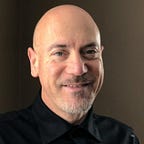The Smart Money Likes Salmon
My earlier article about South African entrepreneur, Peter Wakefield’s, plan to build a Recirculating Aquaculture System (RAS) business called Wild Coast Salmon in his home country drew some interest from some of the smartest of the smart money set.
Last week, I participated in a conference call between Wakefield and an influential, New York investor group and found both Wakefield’s comments and the reaction of the investors to be interesting and instructive. Here are my take-aways.
The Shift Toward Sustainable Investing is not Just a Fad
The investors were genuinely interested in investment projects related to the development of a new economic paradigm, especially focusing on investments in the big three necessities of life — food, water, and energy.
In my own work, I have conceived of investment opportunities in terms of Maslow’s Hierarchy of Needs, the most fundamental level of which is the human need for food, water, warmth, and rest.
In our modern civilization, these elements all rely explicitly and implicitly on easy availability of portable energy in the form of petroleum-based fuels. Climate change and the steps that will be taken to counteract its ill effects will necessitate a complete rethink of how we solve these most basic of human needs.
As investors, we look for companies that supply products and services customers cannot live without. And while you may think that you cannot live without your iPhone or your Facebook account, think about how quickly you would trade either one of those in for a plate of food if you hadn’t eaten in a few days.
Regional Supply Hubs Are Very Attractive
The COVID-19 crisis has underscored the danger of long supply chains with Just-in-Time inventory management and extreme production specialization.
However, even without the pandemic’s reminder, it is clear to your humble correspondent that — whether through a governmentally imposed carbon tax or the simple fact that environmental degradation will start to exact its own “natural” tax on carbon waste (through famine and other natural disasters, for example) — this supply chain paradigm will be forced to change.
The fact that Wakefield’s Wild Coast Salmon is sited in South Africa gives him a natural advantage over a Norwegian salmon farmer selling into the South African market.
The supply chain for a traditional salmon farmer is already complex, even before shipping frozen slabs of fish halfway around the world. Wakefield’s use of RAS technology and his company’s physical proximity to the end market means that he will be able to deliver fresher, higher quality products to his buyers more efficiently. There is no investor in the world who would not be attracted to a pitch like that.
The Devil is in the Details
A smart, insightful 24-year old might be able to walk into Andreesen Horowitz and pitch an idea about a new digital something or other. And while the days of scribbling out a product plan on the back of a napkin probably wouldn’t get most entrepreneurs venture funding these days, a five-page pitch deck, some slick screen mock-ups, and a good story can be enough to win a check.
However, in the world of food, water, and energy investments, just having a good idea is not enough. Without specific, detailed plans, based on years of cycles of failures, “not-quite-rights”, rethinks, and successes, it’s hard to make a business case attractive enough to garner a smart investor’s capital.
My guess is that the faces of climate change entrepreneurs may be a bit greyer and more lined than those of Bill Gates in the 80s or Mark Zuckerberg in the aughts, and with good reason — experience matters when you’re sinking capital into the hard assets that form the base of a new infrastructure paradigm.
Originally published at https://www.forbes.com.
